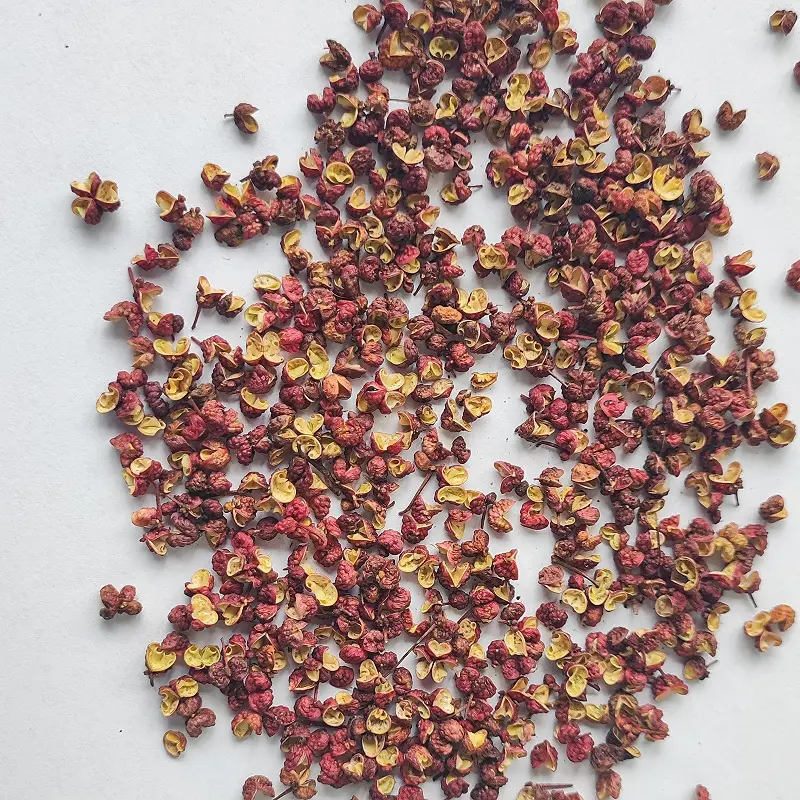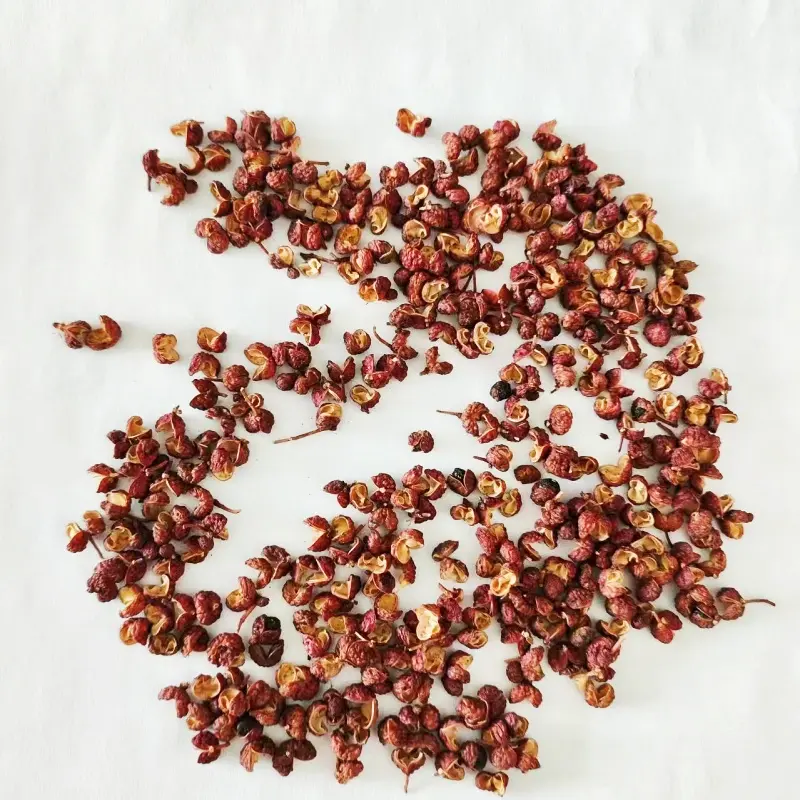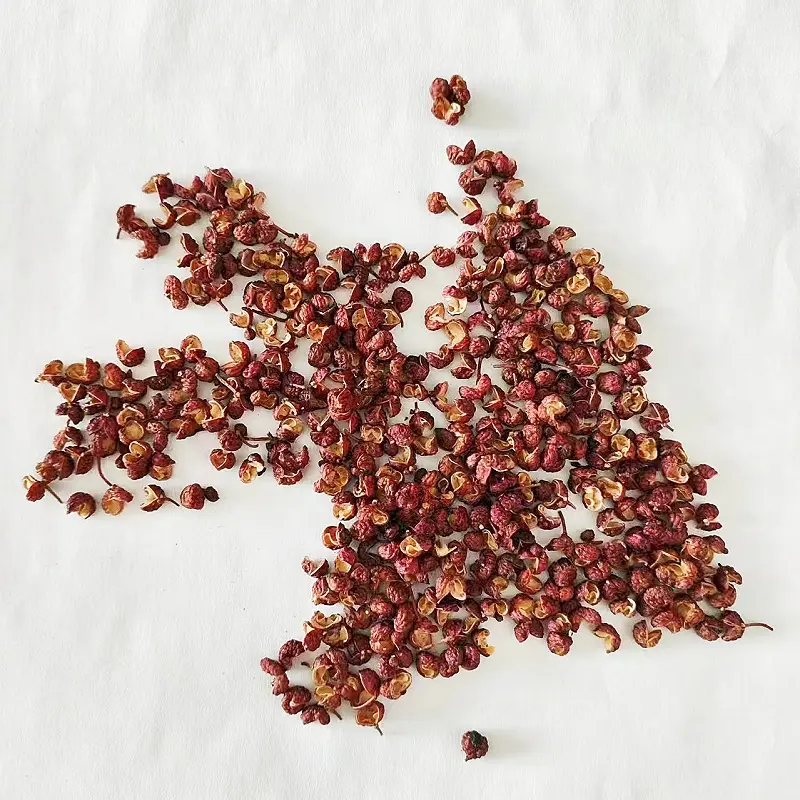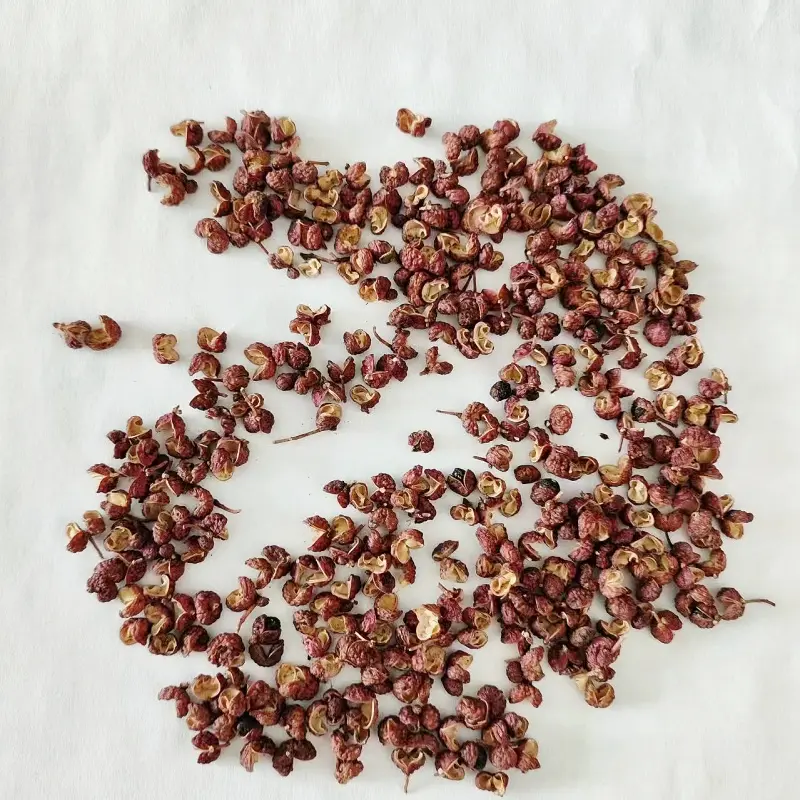The Versatile Uses of Sichuan Pepper Oil
Sichuan pepper oil, derived from the husks of the prickly ash tree (genus Zanthoxylum), holds a distinct place in the culinary and medicinal traditions of East Asia, particularly in Chinese cuisine. Unlike black or white peppercorns, Sichuan peppercorns are not true peppers but the dried husks of the plant's seeds. This oil imparts a unique, numbing sensation on the tongue, known as "má" (麻), and a citrusy, fragrant aroma that makes it a beloved ingredient in many dishes. Beyond its culinary uses, Sichuan pepper oil also offers various health benefits. This article delves into the versatile uses of Sichuan pepper oil, exploring its role in cooking, medicine, and beyond.
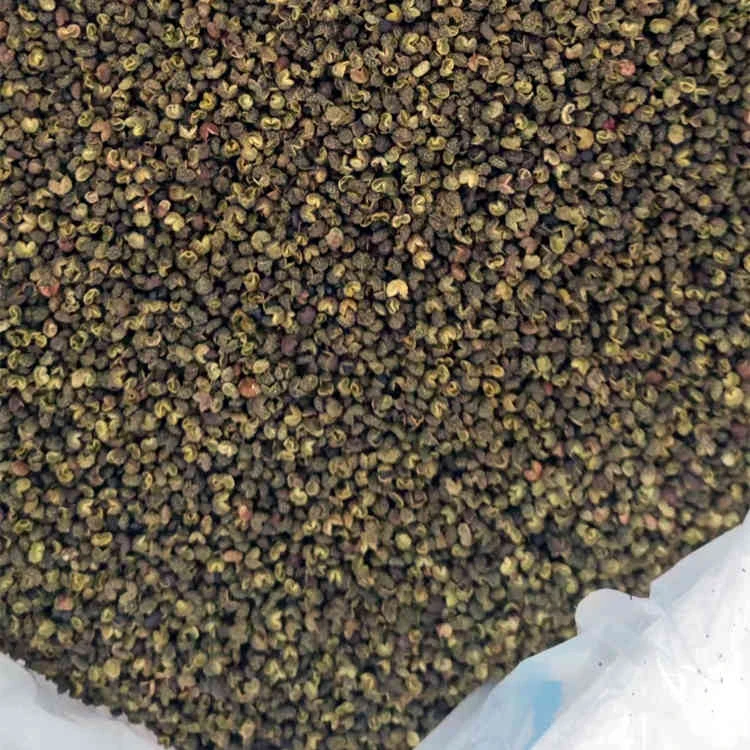
Culinary Uses
1. Flavoring Agent in Stir-Fries and Marinades
Sichuan pepper oil is a staple in Sichuan cuisine, famous for its bold, spicy flavors. It is commonly used to season stir-fries, where a few drops can transform a simple vegetable or meat dish into a flavorful experience. The oil is often added at the end of cooking to preserve its distinct aroma. In marinades, it imparts a complex flavor profile, enhancing the taste of meats such as chicken, pork, and beef.
2. Enhancing Noodle Dishes
Noodle dishes, including hot and cold preparations, benefit greatly from the addition of Sichuan pepper oil. It adds a depth of flavor and a unique numbing sensation that complements the chewy texture of noodles. For example, the classic Sichuan dish, "Dandan Noodles," features a rich, spicy sauce made with chili oil, Sichuan pepper oil, and minced meat, creating a symphony of flavors that delight the palate.
3. Seasoning for Dumplings and Dim Sum
Sichuan pepper oil is often used as a seasoning for dumplings and dim sum. It can be incorporated into the filling or drizzled over the top before serving. This addition not only enhances the flavor but also provides a pleasant, tingling sensation that pairs well with the savory and sometimes spicy filling of these bite-sized delicacies.
4. Salad Dressings and Dipping Sauces
The oil's versatility extends to cold dishes and dipping sauces. It can be mixed with soy sauce, vinegar, garlic, and other spices to create a vibrant dressing for salads or a dipping sauce for meats and vegetables. The unique flavor of Sichuan pepper oil adds an exciting twist to these condiments, making them more appealing and flavorful.
5. Soup and Stew Enhancer
Adding Sichuan pepper oil to soups and stews can elevate the overall flavor profile. It is especially effective in hot and sour soups, where its numbing heat balances the sourness and spiciness. The oil can be drizzled into the soup just before serving, ensuring that its aroma and flavor remain potent.
Medicinal Uses
1. Digestive Aid
Traditional Chinese medicine often uses Sichuan pepper oil for its digestive benefits. It is believed to stimulate appetite and aid digestion by promoting the secretion of gastric juices. This can be particularly beneficial for individuals suffering from poor appetite or digestive issues.
2. Pain Relief and Anti-Inflammatory Properties
The oil is known for its analgesic and anti-inflammatory properties. Topically applied, it can help relieve pain from conditions such as arthritis and muscle soreness. Its numbing effect provides temporary relief, while its anti-inflammatory properties help reduce swelling and inflammation.
3. Antimicrobial and Antifungal Effects
Sichuan pepper oil has been shown to possess antimicrobial and antifungal properties, making it useful in the treatment of various infections. It can be used to disinfect minor wounds and prevent bacterial infections. Additionally, its antifungal properties make it effective against fungal infections like athlete's foot.
4. Circulatory Benefits
The oil is believed to promote blood circulation, which can be beneficial for individuals with circulatory issues. Improved circulation helps in the delivery of oxygen and nutrients to tissues, promoting overall health and wellness.
5. Respiratory Health
Inhalation of the oil's vapors can help alleviate respiratory issues such as congestion and asthma. The oil's pungent aroma helps clear nasal passages, making it easier to breathe. This makes it a valuable addition to remedies for colds and other respiratory ailments.
Beyond Culinary and Medicinal Uses
1. Aromatherapy and Relaxation
The unique aroma of Sichuan pepper oil can be utilized in aromatherapy. Its invigorating scent is believed to uplift mood and reduce stress. Diffusing the oil in a room or adding a few drops to a bath can create a relaxing atmosphere and help alleviate anxiety.
2. Insect Repellent
Sichuan pepper oil can be used as a natural insect repellent. Its strong scent deters insects, making it an effective alternative to chemical repellents. It can be applied to the skin in diluted form or used in candles and sprays to keep bugs at bay.
3. Culinary Innovation and Fusion Cuisine
Chefs around the world are increasingly incorporating Sichuan pepper oil into fusion cuisine, experimenting with its unique flavor to create new dishes. It pairs well with a variety of ingredients, including seafood, fruits, and even desserts. This innovative use of the oil has led to exciting culinary creations that blend Eastern and Western flavors.
4. Preservative for Foods
The antimicrobial properties of Sichuan pepper oil make it a potential natural preservative. It can help extend the shelf life of certain foods by inhibiting the growth of bacteria and fungi. This application is particularly useful in preserving homemade sauces and condiments.
5. Craft Cocktails and Beverages
Mixologists are also exploring the use of Sichuan pepper oil in craft cocktails and beverages. Its unique flavor and numbing sensation add an intriguing element to drinks, making them more memorable and distinctive. A few drops of the oil can transform a simple cocktail into a complex and exciting experience.
What Are The Main Culinary Uses Of Sichuan Pepper Oil?
Sichuan pepper oil is a culinary gem that transforms ordinary dishes with its unique flavor and numbing sensation. Its versatility in the kitchen is unmatched, making it a staple in many Chinese dishes and increasingly popular in global cuisines. Here’s an in-depth look at its main culinary uses:
1. Stir-Fries and Marinades:
Stir-fries are a cornerstone of Chinese cuisine, and Sichuan pepper oil is often a key ingredient. It is typically added towards the end of the cooking process to preserve its fragrant aroma and distinctive flavor. A small amount of this oil can enhance the taste of vegetables, meats, and seafood. In marinades, Sichuan pepper oil works wonders by infusing the ingredients with a complex, layered taste. It pairs well with soy sauce, garlic, and ginger, making it perfect for marinating chicken, pork, beef, or tofu.
2. Noodle Dishes:
Noodles are another major component of Chinese food culture. Sichuan pepper oil is frequently used in both hot and cold noodle dishes. For instance, in "Dandan Noodles," the oil is combined with chili oil, minced meat, and a rich sauce to create a tantalizing mix of flavors. The oil’s numbing heat complements the chewy texture of the noodles, providing a memorable culinary experience.
3. Dumplings and Dim Sum:
Sichuan pepper oil enhances the flavor of dumplings and dim sum, either by being incorporated into the filling or drizzled on top before serving. This adds a zingy, numbing sensation that contrasts beautifully with the savory and sometimes spicy fillings. It’s a perfect addition to sauces and dips that accompany these bite-sized delights.
4. Salad Dressings and Dipping Sauces:
The oil’s unique flavor also makes it a fantastic ingredient for salad dressings and dipping sauces. A simple yet flavorful dressing can be made by mixing Sichuan pepper oil with soy sauce, vinegar, and a touch of sugar. This dressing is particularly good with Asian-style salads, adding an exotic twist. For dipping sauces, combine the oil with other ingredients like garlic, scallions, and sesame oil to create a versatile sauce for dumplings, spring rolls, and grilled meats.
5. Soups and Stews:
Adding Sichuan pepper oil to soups and stews can significantly elevate their flavor profile. It is especially effective in hot and sour soups, where its numbing heat balances the sour and spicy elements. When added just before serving, the oil maintains its aromatic properties, ensuring a vibrant flavor in every spoonful.
6. Fusion Cuisine:
Chefs around the world are increasingly using Sichuan pepper oil in fusion dishes, blending Eastern and Western culinary traditions. Its unique taste complements a wide range of ingredients, from seafood to fruits and even desserts. For instance, it can add an intriguing layer of flavor to a citrus salad or a seafood ceviche.
7. Craft Cocktails:
Innovative mixologists are experimenting with Sichuan pepper oil in cocktails. Its numbing effect and aromatic quality can enhance the complexity of a drink, making it a conversation piece. A few drops in a gin and tonic or a margarita can turn a classic cocktail into something extraordinary.
Sichuan pepper oil’s versatility in the kitchen is truly remarkable. Its ability to enhance the flavor of a wide variety of dishes, from traditional Chinese fare to modern fusion cuisine, makes it an invaluable ingredient. Whether you’re a home cook or a professional chef, experimenting with Sichuan pepper oil can open up a world of culinary possibilities.

What Are The Health Benefits Of Sichuan Pepper Oil?
Sichuan pepper oil is not only prized for its unique culinary properties but also for its numerous health benefits. Traditional Chinese medicine has long utilized this oil for its therapeutic effects. Modern research supports many of these traditional uses, revealing a wide range of health benefits.
1. Digestive Aid:
Sichuan pepper oil is known to stimulate appetite and aid digestion. It promotes the secretion of gastric juices, which helps break down food more efficiently. This can be particularly beneficial for individuals with poor appetite or digestive issues. The oil’s aromatic compounds also help to alleviate bloating and gas, making it a natural remedy for digestive discomfort.
2. Pain Relief and Anti-Inflammatory Properties:
The oil possesses analgesic properties, making it useful for pain relief. When applied topically, it can help alleviate pain from conditions such as arthritis, muscle soreness, and minor injuries. The numbing effect of Sichuan pepper oil provides temporary relief from pain, while its anti-inflammatory properties help reduce swelling and inflammation. This dual action makes it a valuable natural remedy for managing pain and inflammation.
3. Antimicrobial and Antifungal Effects:
Sichuan pepper oil has been shown to have antimicrobial and antifungal properties. It can be used to disinfect minor cuts and wounds, preventing bacterial infections. Its antifungal properties are effective against fungal infections like athlete’s foot. Using the oil in this manner helps harness its natural healing properties without the need for synthetic chemicals.
4. Circulatory Benefits:
The oil is believed to promote blood circulation, which can have several health benefits. Improved circulation ensures that oxygen and nutrients are efficiently delivered to tissues and organs, promoting overall health. This can be particularly beneficial for individuals with circulatory issues or those looking to boost their cardiovascular health.
5. Respiratory Health:
Inhalation of Sichuan pepper oil vapors can help alleviate respiratory issues such as congestion and asthma. The pungent aroma of the oil helps clear nasal passages, making it easier to breathe. This makes it a valuable addition to remedies for colds and other respiratory ailments. Simply adding a few drops to hot water and inhaling the steam can provide relief from nasal congestion and improve breathing.
6. Antioxidant Properties:
Sichuan pepper oil contains antioxidants that help protect the body from oxidative stress. Oxidative stress is a condition where free radicals cause damage to cells and tissues, leading to various chronic diseases. The antioxidants in Sichuan pepper oil neutralize these free radicals, reducing the risk of chronic conditions such as heart disease and cancer.
7. Stress Relief and Mental Health:
The aromatic properties of Sichuan pepper oil can also contribute to mental health. Aromatherapy using this oil can help reduce stress and anxiety. Its invigorating scent is known to uplift mood and promote relaxation. Diffusing the oil in a room or adding a few drops to a warm bath can create a calming atmosphere, helping to alleviate anxiety and improve overall well-being.
Sichuan pepper oil offers a plethora of health benefits, from aiding digestion and relieving pain to boosting circulation and respiratory health. Its antimicrobial and antioxidant properties further enhance its therapeutic potential. Whether used topically, ingested in small amounts, or inhaled for its aromatic benefits, Sichuan pepper oil is a versatile and valuable addition to a natural health regimen.
How Can Sichuan Pepper Oil Be Used Beyond Cooking And Health Benefits?
Sichuan pepper oil, renowned for its culinary and medicinal uses, also finds application in several non-traditional areas. Its unique properties make it a versatile ingredient in various innovative and practical uses.
1. Aromatherapy and Relaxation:
The invigorating scent of Sichuan pepper oil makes it a valuable addition to aromatherapy practices. The oil’s aroma can uplift mood, reduce stress, and promote relaxation. Diffusing the oil in a room can create a soothing environment, helping to alleviate anxiety and improve mental clarity. Adding a few drops to a warm bath can enhance the relaxing experience, making it an excellent way to unwind after a stressful day.
2. Natural Insect Repellent:
Sichuan pepper oil can be used as a natural insect repellent. Its strong scent deters insects, making it an effective alternative to chemical repellents. The oil can be applied to the skin in a diluted form to keep mosquitoes and other bugs at bay. Additionally, it can be used in candles and sprays to repel insects from homes and outdoor spaces, providing a natural and eco-friendly solution to pest control.
3. Culinary Innovation and Fusion Cuisine:
Chefs around the world are increasingly incorporating Sichuan pepper oil into fusion cuisine. Its unique flavor complements a wide range of ingredients, from seafood to fruits and even desserts. For instance, the oil can add an intriguing layer of flavor to a citrus salad or a seafood ceviche. This innovative use of the oil has led to exciting culinary creations that blend Eastern and Western flavors, expanding the possibilities of global cuisine.
4. Preservative for Foods:
The antimicrobial properties of Sichuan pepper oil make it a potential natural preservative. It can help extend the shelf life of certain foods by inhibiting the growth of bacteria and fungi. This application is particularly useful in preserving homemade sauces, pickles, and condiments, allowing for longer storage without the need for synthetic preservatives.
5. Craft Cocktails and Beverages:
Mixologists are exploring the use of Sichuan pepper oil in craft cocktails and beverages. The oil’s unique numbing sensation and aromatic qualities add an intriguing element to drinks, making them more memorable and distinctive. A few drops of the oil can transform a simple cocktail into a complex and exciting experience. It pairs particularly well with gin, vodka, and citrus-based drinks, enhancing their flavor profile.
6. Cosmetic Applications:
Sichuan pepper oil’s anti-inflammatory and antimicrobial properties make it a beneficial ingredient in cosmetics and skincare products. It can be used in lotions and creams to help soothe irritated skin and reduce inflammation. Additionally, its antimicrobial properties can help in treating acne and other skin conditions, making it a valuable component in natural skincare formulations.
7. Gardening and Agriculture:
The oil can also be used in gardening and agriculture as a natural pest deterrent. Its strong scent repels certain pests, protecting plants without the use of harmful chemicals. This application supports organic farming practices and contributes to a healthier environment by reducing the need for synthetic pesticides.
Sichuan pepper oil’s versatility extends far beyond the kitchen and medicine cabinet. Its unique properties make it a valuable ingredient in aromatherapy, natural insect repellent, culinary innovation, food preservation, craft cocktails, cosmetics, and even gardening. As people continue to explore and innovate, the potential uses of Sichuan pepper oil are likely to expand, solidifying its place as a multifaceted and invaluable resource.
How Is Sichuan Pepper Oil Made?
Sichuan pepper oil is a distinctive and flavorful ingredient essential in many Asian cuisines. The process of making this oil involves several steps, from harvesting the Sichuan peppercorns to extracting the aromatic oils. Here’s a detailed look at how Sichuan pepper oil is made:
1. Harvesting the Peppercorns:
Sichuan peppercorns are harvested from the prickly ash tree, specifically from the genus Zanthoxylum. These trees are typically found in regions of China, Japan, and Korea. The peppercorns are actually the dried husks of the fruit, not true peppercorns. Harvesting usually occurs in late summer when the husks split open and the seeds are exposed. The husks are collected, and the black seeds inside are usually discarded, as they are not used in making the oil.
2. Drying the Peppercorns:
After harvesting, the peppercorns are thoroughly dried to reduce moisture content and enhance their flavor. This can be done naturally by spreading the peppercorns under the sun or using drying equipment. Proper drying is crucial to prevent mold and preserve the peppercorns' aromatic properties.
3. Roasting the Peppercorns:
Roasting is a critical step in developing the unique flavor profile of Sichuan pepper oil. The dried peppercorns are gently roasted in a dry pan over low to medium heat. This process releases the essential oils and enhances the peppercorns' fragrance and flavor. The key is to roast them until they become aromatic without burning them, which requires careful attention.
4. Infusing the Oil:
Once roasted, the peppercorns are infused into oil. The choice of oil can vary, but light oils such as canola, grapeseed, or peanut oil are commonly used due to their neutral flavor, which allows the Sichuan pepper flavor to shine. The roasted peppercorns are added to the oil, which is then heated gently to allow the flavors to infuse. This can be done on a stovetop, where the oil is heated to around 120-140°F (49-60°C) for several minutes. It’s important to maintain a low temperature to avoid burning the peppercorns and to ensure a slow infusion of flavors.
5. Cooling and Straining:
After the infusion process, the oil is allowed to cool. Once cooled, it is strained to remove the peppercorns, leaving behind a clear, aromatic oil. Fine mesh strainers or cheesecloth can be used to ensure that no solid particles remain in the oil. This step is essential for achieving a smooth and clean oil without any debris.
6. Bottling and Storing:
The final step is bottling the oil. The strained Sichuan pepper oil is poured into sterilized bottles or jars. Proper sealing is crucial to maintain the oil’s freshness and prevent oxidation. The oil should be stored in a cool, dark place to preserve its flavor and extend its shelf life. When stored properly, Sichuan pepper oil can last for several months.
7. Quality Control and Variations:
Quality control is important to ensure consistency and purity. Factors such as the quality of peppercorns, the type of oil used, and the infusion process can affect the final product. Some variations of Sichuan pepper oil may include additional spices such as star anise, ginger, or chili peppers to create a more complex flavor profile. These additions are infused along with the peppercorns during the oil infusion process.
Making Sichuan pepper oil is a meticulous process that involves careful selection, drying, roasting, and infusing of the peppercorns. The resulting oil captures the unique flavor and numbing sensation of Sichuan peppercorns, making it a versatile ingredient in many culinary applications. By understanding the steps involved in its production, one can appreciate the effort that goes into creating this distinctive oil.
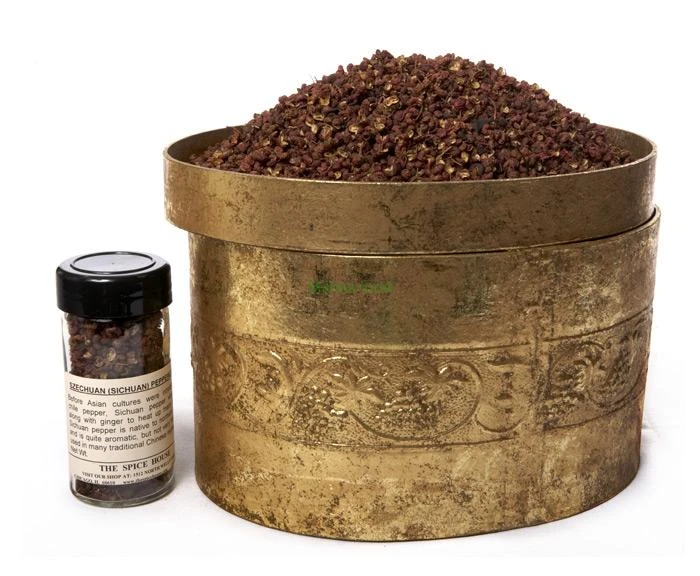
What Are The Differences Between Sichuan Pepper Oil And Other Flavored Oils?
Sichuan pepper oil stands out among other flavored oils due to its unique properties and the distinctive experience it provides. Comparing it to other popular flavored oils highlights its singular attributes and diverse applications. Here’s a detailed look at the differences between Sichuan pepper oil and other flavored oils:
1. Flavor Profile:
The most notable difference is the flavor. Sichuan pepper oil has a unique citrusy, floral aroma combined with a distinctive numbing sensation known as "má" (麻). This numbing effect is due to hydroxy-alpha-sanshool, a compound present in Sichuan peppercorns. In contrast, other flavored oils, such as garlic oil, chili oil, and basil oil, have more straightforward flavor profiles. Garlic oil is pungent and savory, chili oil is spicy with a heat that varies based on the type of chili used, and basil oil is herbaceous and slightly sweet.
2. Sensory Experience:
Sichuan pepper oil provides a unique sensory experience by numbing the tongue and lips, which is not found in other flavored oils. This sensation can alter the perception of other flavors in a dish, enhancing the overall dining experience. In contrast, other flavored oils primarily contribute to the taste without significantly altering the sensory experience of the palate.
3. Culinary Uses:
Sichuan pepper oil is versatile in culinary applications, particularly in Sichuan cuisine. It is used in stir-fries, noodle dishes, dumplings, and sauces to add depth and complexity. It also pairs well with other bold flavors, such as chili and garlic, making it an essential ingredient in spicy dishes. On the other hand, garlic oil is often used to add a rich, savory flavor to pasta, bread, and roasted vegetables. Chili oil is a staple in many Asian cuisines, used to add heat to dishes like noodles, dumplings, and stir-fries. Basil oil is commonly used in Italian cuisine, drizzled over salads, pizzas, and pasta dishes for a fresh, aromatic touch.
4. Health Benefits:
Sichuan pepper oil offers various health benefits, including digestive aid, pain relief, and antimicrobial properties. Its numbing effect can help with certain types of pain, and its compounds have been shown to possess antibacterial and antifungal properties. In comparison, garlic oil is known for its cardiovascular benefits, anti-inflammatory properties, and ability to boost the immune system. Chili oil contains capsaicin, which has pain-relieving properties and can boost metabolism. Basil oil is rich in antioxidants and has anti-inflammatory and antibacterial properties.
5. Cultural Significance:
Sichuan pepper oil is deeply rooted in Chinese culinary traditions, particularly in the Sichuan province. It is a key component of the "mala" flavor profile, which combines numbing and spicy sensations. This cultural significance sets it apart from other flavored oils, which may not have such a strong regional identity. For example, chili oil is widely used in various Asian cuisines, but its significance is more generalized. Basil oil is primarily associated with Italian cuisine and Mediterranean dishes, reflecting the flavors and traditions of those regions.
6. Production Methods:
The production of Sichuan pepper oil involves roasting Sichuan peppercorns to release their essential oils, followed by infusing them into a neutral oil. This process is specific to Sichuan pepper oil and is crucial for capturing its unique flavor and numbing properties. Other flavored oils have different production methods. Garlic oil is typically made by slowly simmering garlic cloves in oil to extract their flavor. Chili oil is produced by infusing dried chilies in hot oil. Basil oil is made by blending fresh basil leaves with oil, often using a cold infusion method to preserve the herb’s delicate flavor.
Sichuan pepper oil is distinct from other flavored oils due to its unique flavor profile, numbing sensation, and cultural significance. While it shares some common uses with oils like garlic, chili, and basil, its unique properties make it a standout ingredient in both traditional and modern culinary applications. Understanding these differences can help chefs and home cooks make informed choices about which oil to use based on the desired flavor and sensory experience.
How Can Sichuan Pepper Oil Be Safely Stored And Used?
Sichuan pepper oil, with its unique flavor and aromatic properties, requires proper storage and handling to maintain its quality and safety. Here’s a comprehensive guide on how to store and use Sichuan pepper oil safely:
1. Storage Tips:
a. Cool, Dark Place:
Sichuan pepper oil should be stored in a cool, dark place away from direct sunlight. Exposure to light and heat can degrade the oil, causing it to lose its flavor and aroma. A pantry or cupboard is ideal for storage.
b. Airtight Containers:
Use airtight containers to store the oil. Glass bottles with tight-fitting lids are preferable because they do not react with the oil and provide a good seal. Avoid using plastic containers, as they can absorb the oil’s aroma and affect its quality.
c. Refrigeration:
While not always necessary, refrigerating Sichuan pepper oil can extend its shelf life, especially if you live in a warm climate. Cold storage slows down the oxidation process, keeping the oil fresh for a longer period.
d. Avoiding Contamination:
Always use clean utensils when handling the oil to prevent contamination. Introducing foreign particles or moisture can lead to spoilage and reduce the oil’s quality.
2. Shelf Life:
When stored properly, Sichuan pepper oil can last for several months. However, it’s best to use it within 3-6 months for optimal flavor. Over time, the oil may lose some of its potency and aromatic qualities.
3. Safe Usage:
a. Culinary Use:
Sichuan pepper oil is highly potent, so it should be used sparingly. A few drops are often enough to impart the desired flavor and numbing sensation to dishes. It is typically added towards the end of cooking to preserve its aromatic properties.
b. Topical Use:
When using Sichuan pepper oil for topical applications, such as for pain relief or as an insect repellent, it should be diluted with a carrier oil like olive oil or coconut oil. This helps prevent skin irritation. A typical dilution ratio is 1-2 drops of Sichuan pepper oil per tablespoon of carrier oil. Always perform a patch test on a small area of skin to ensure there is no adverse reaction.
c. Ingestion:
While Sichuan pepper oil can be ingested in small amounts as part of culinary applications, it should never be consumed in large quantities. Excessive ingestion can cause gastrointestinal discomfort. Always use the oil as directed in recipes and avoid overuse.
d. Allergic Reactions:
Be aware that some individuals may be allergic to Sichuan pepper oil. Symptoms of an allergic reaction can include skin rashes, itching, swelling, or difficulty breathing. If any of these symptoms occur, discontinue use immediately and seek medical attention.
4. Safety Precautions:
a. Keep Away from Children:
Store Sichuan pepper oil out of reach of children. Its potent nature and potential for causing irritation make it important to keep it safely stored away from young ones.
b. Avoid Contact with Eyes:
Sichuan pepper oil can cause significant irritation if it comes into contact with the eyes. If accidental contact occurs, rinse thoroughly with water and seek medical advice if irritation persists.
c. Handling Spills:
In case of spills, clean up immediately using a cloth or paper towel. Avoid using water, as it can spread the oil. Properly dispose of the cleaning materials to prevent any risk of slipping or further contamination.
5. Cooking Tips:
a. Enhancing Dishes:
Use Sichuan pepper oil to enhance the flavor of stir-fries, soups, noodle dishes, and marinades. Its unique taste can elevate simple dishes to new culinary heights.
b. Balancing Flavors:
Because of its strong flavor, balance Sichuan pepper oil with other ingredients like soy sauce, vinegar, garlic, and ginger. This creates a harmonious blend of flavors and prevents the oil from overpowering the dish.
c. Experimenting:
Don’t be afraid to experiment with Sichuan pepper oil in new recipes. Its versatile nature allows it to be used in both traditional and innovative dishes, adding a unique twist to various cuisines.
Proper storage and handling of Sichuan pepper oil are crucial to maintaining its quality and ensuring safe use. By following these guidelines, you can enjoy the unique flavors and benefits of Sichuan pepper oil in a variety of culinary and topical applications.
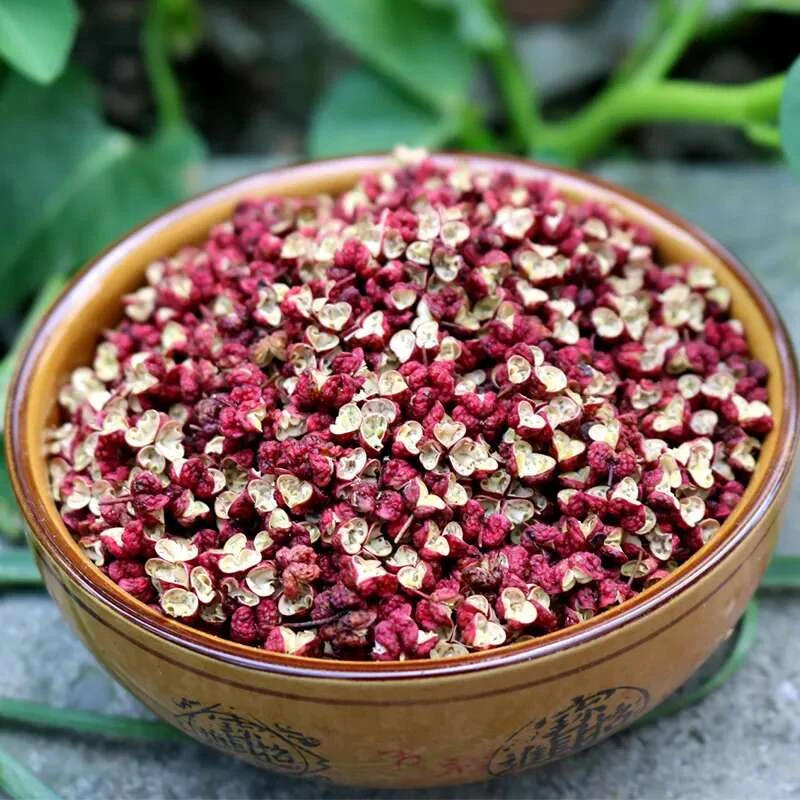
Conclusion
Sichuan pepper oil is a remarkable ingredient with a wide range of uses. Its distinctive flavor and numbing sensation make it a prized addition to many culinary creations, while its medicinal properties offer numerous health benefits. Beyond the kitchen and medicine cabinet, Sichuan pepper oil's unique characteristics lend themselves to various innovative applications, from aromatherapy to insect repellent. As global interest in diverse culinary traditions continues to grow, the versatility and unique qualities of Sichuan pepper oil are sure to be appreciated by chefs, home cooks, and health enthusiasts alike.
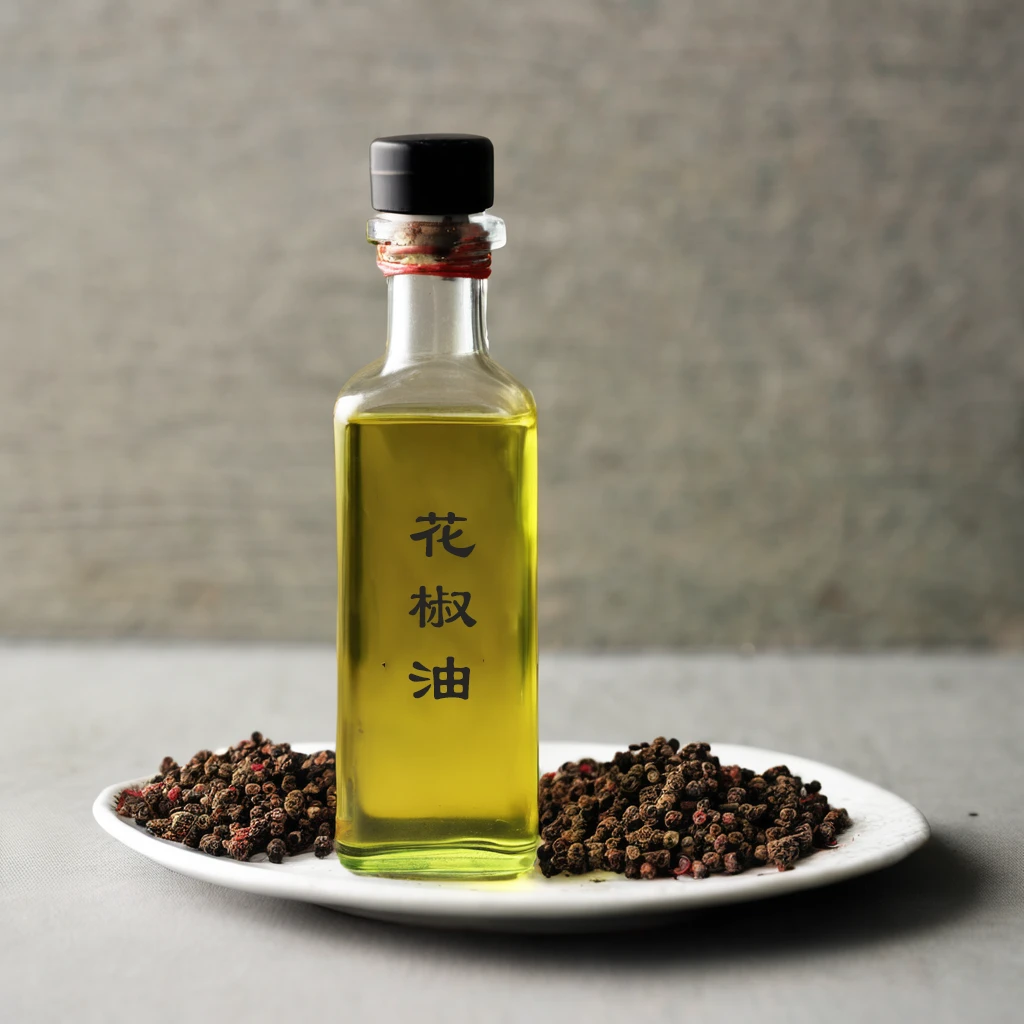

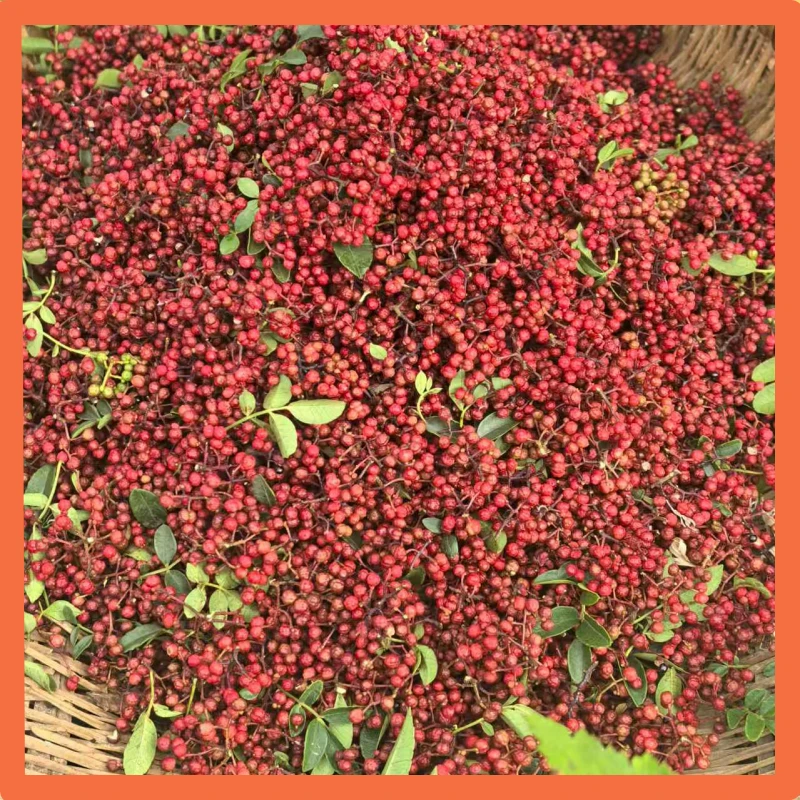
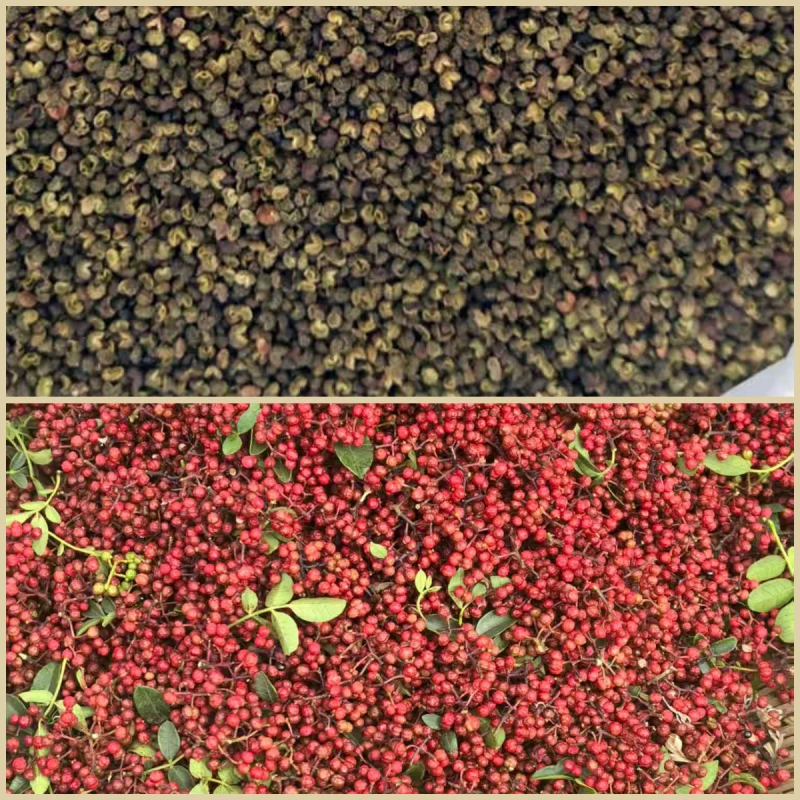

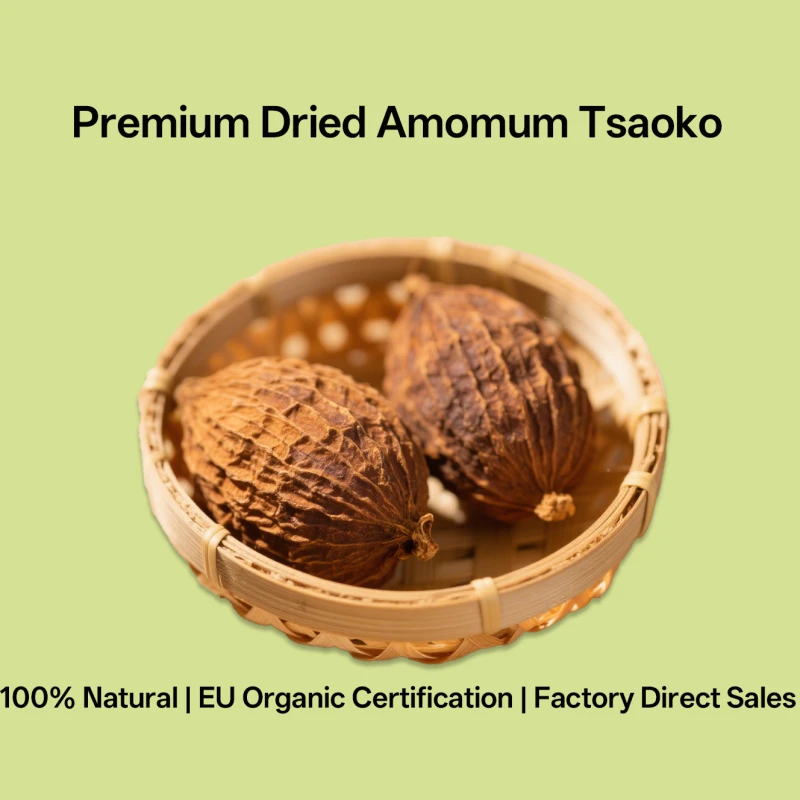
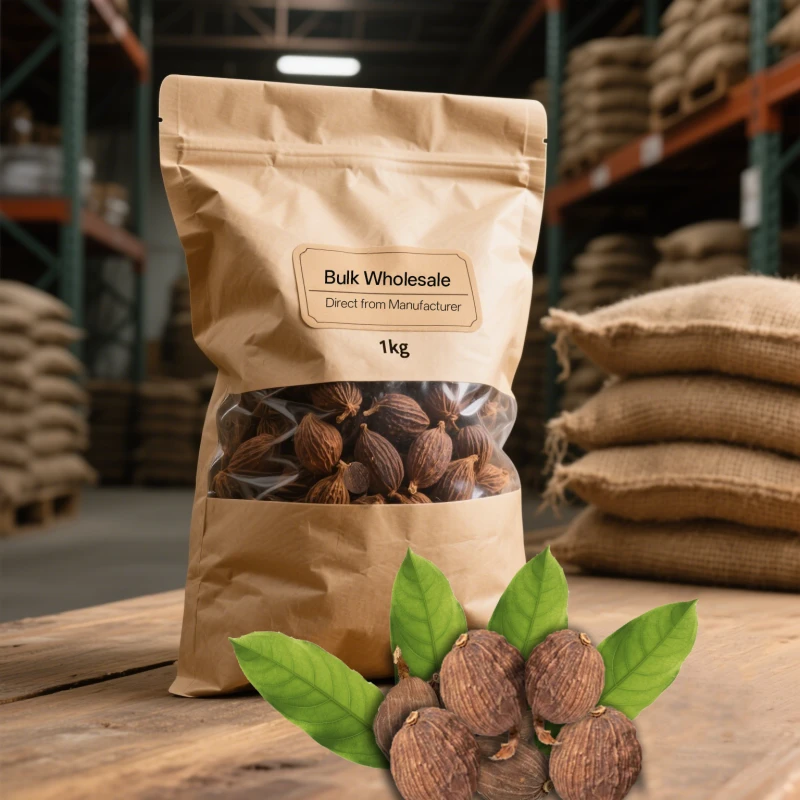
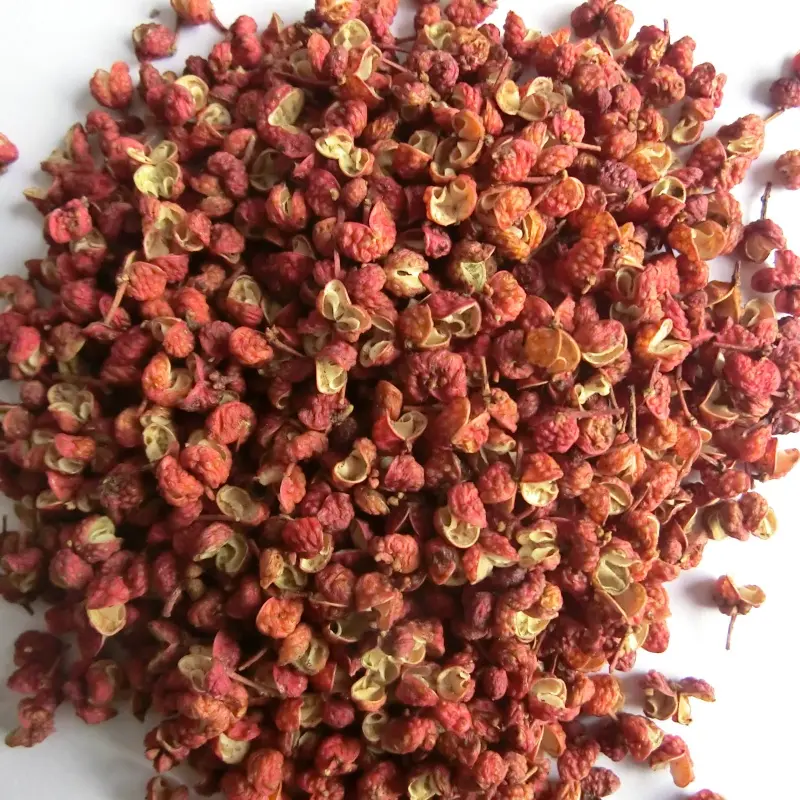
811.webp)
